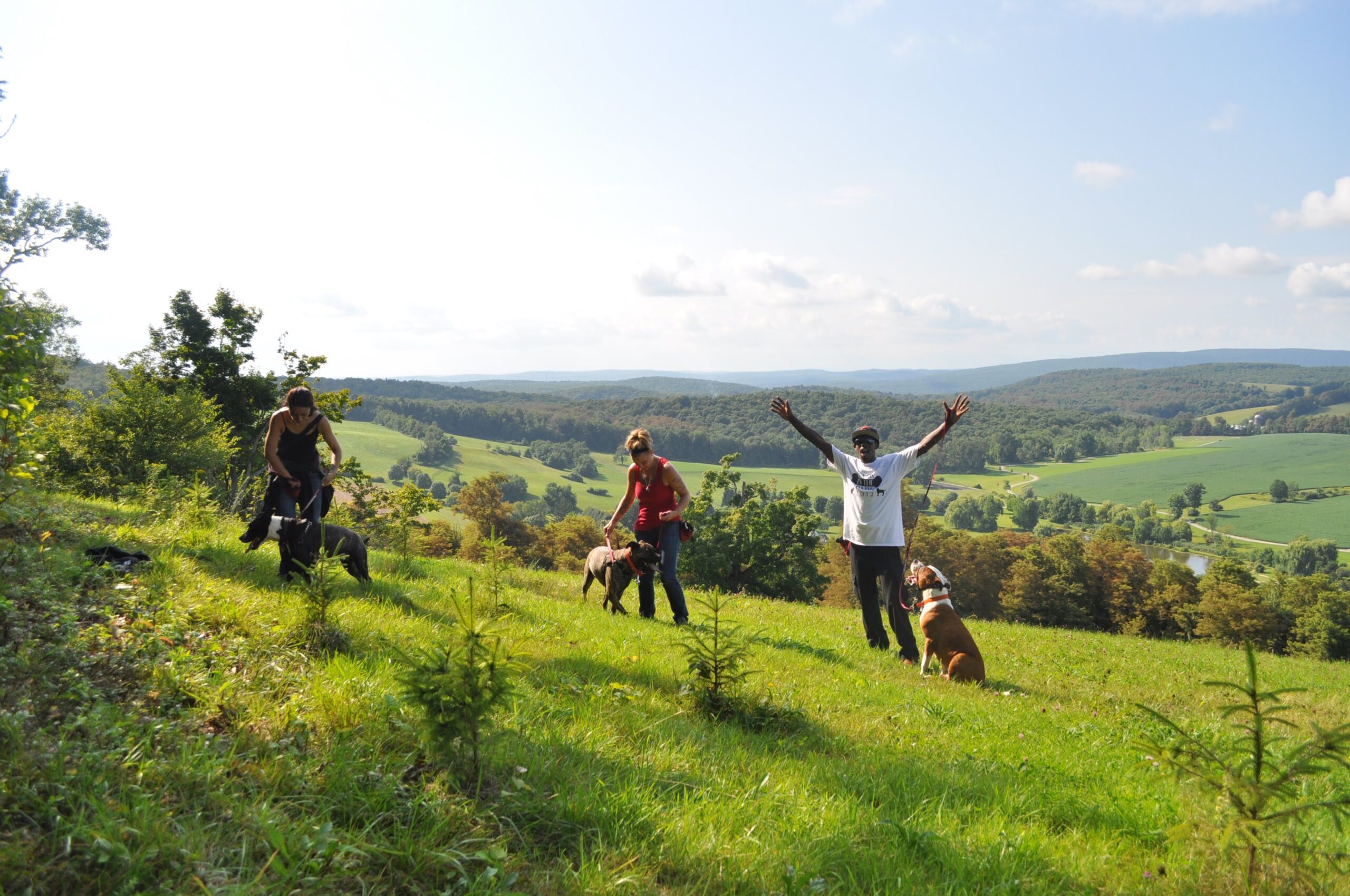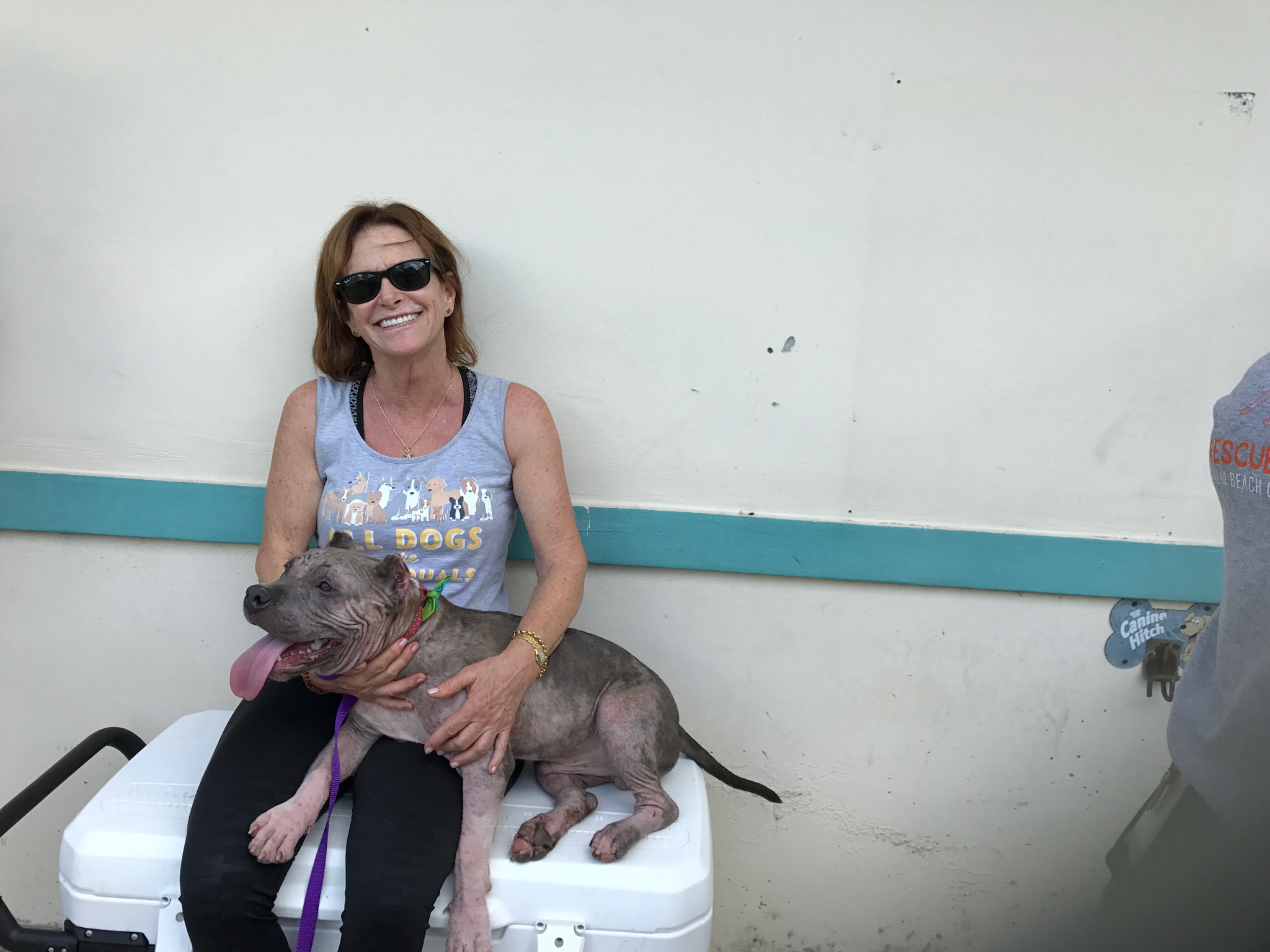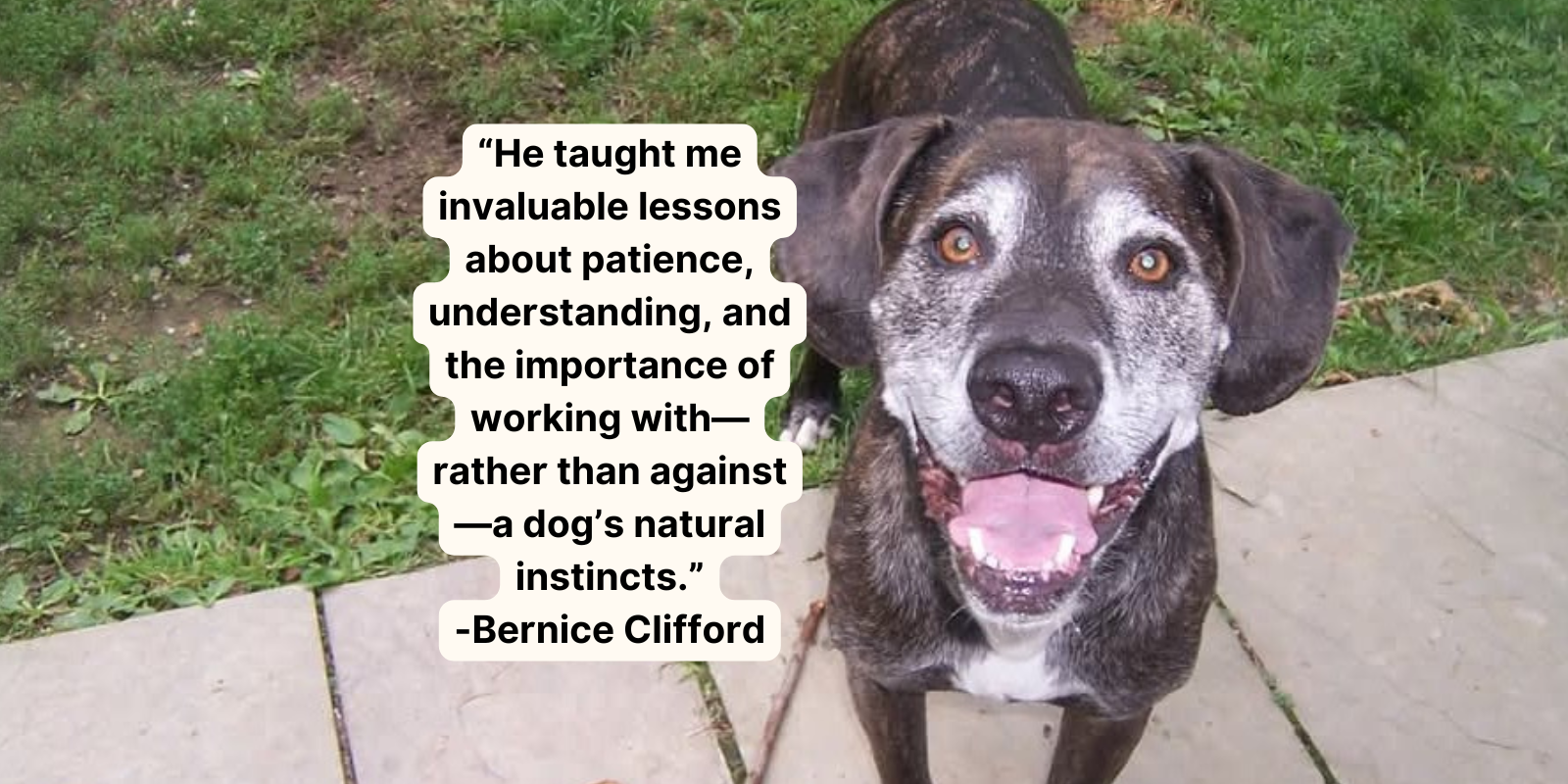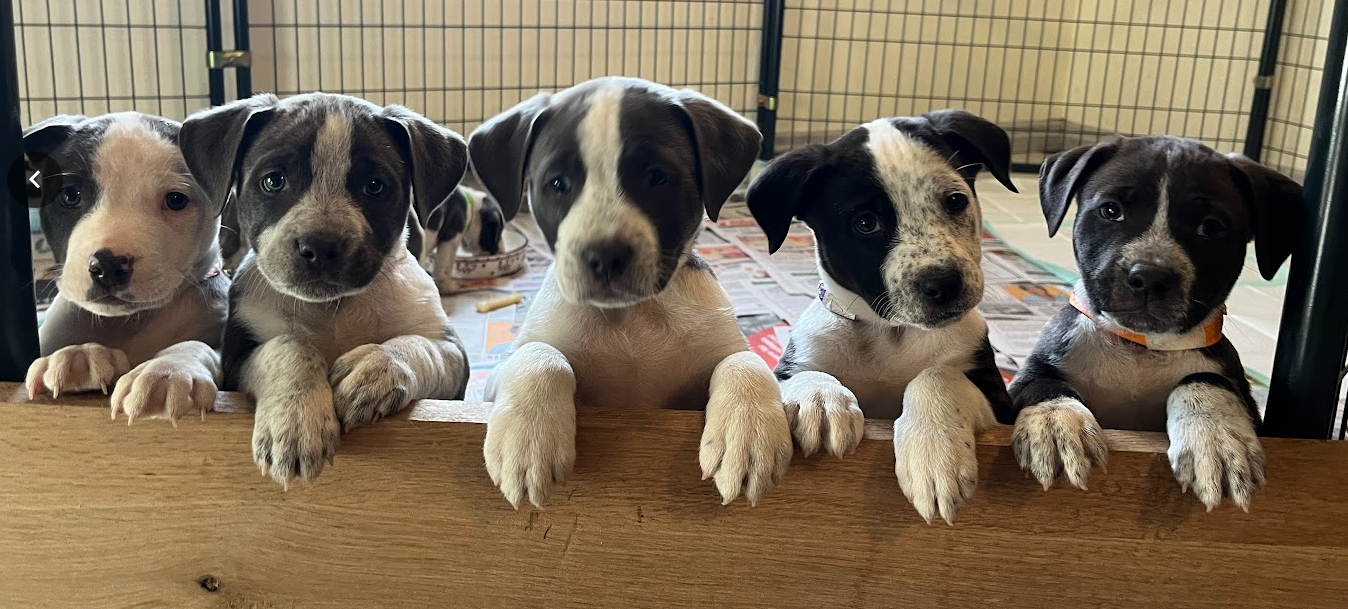Our PAWS of Purpose program at Riker’s Correctional Facility in New York serves two main purposes:
1. We learn more about the dogs we take into our care.
2. The people who participate in the program learn more about who they are.
You all know that we believe that dogs are individuals. As such, dogs need the opportunity to show us who they are. We might know their history, where they came from, what their environment was like – or we might not have any of that information.
But a dog’s past situation doesn’t necessarily tell us who they are or what they have the potential to be. Our PAWS program gives them a chance to show us those things.

During the program, the dogs live with the participants at Rikers. There, they learn basic manners. Through that process, we learn who they are.
Some dogs who we thought might be great service dogs turn out to be couch potatoes. Sometimes, we find out that a dog has a great drive to play and hunt for balls or other toys. Those dogs might make great K9 candidates. And of course, many dogs tell us that they want to be pets in homes.
This year, we had a mix of all three. Gadget went to Rikers and by the time he graduated, we were even more certain he’d be a great service dog. Most recently, two pups who graduated from jail went to Texas to train as detection dogs with our grantee, Sector K9.
And so many of the dogs were available for adoption post-graduation. Most are spending the holidays with their families this year, but a few are still looking for their people.
These are all results you probably expect from a program like this. What you might not expect is the impact the dogs have on the participants.
The dogs don’t know and don’t care about the background of the participants who care for them. They only care about belly rubs, treats, and the attention they receive during training. The impact that kind of judgment-free bonding has on the participants is invaluable.
One thing that we repeatedly hear from them is that they feel a kinship with the dogs. The dogs that enter the program are perceived by some individuals to be “pit bulls.” That label is loaded with stigma, much like the stigma the participants have faced in their life.
Their experience with the program shows them that labels, background, and circumstances don’t have to define who they are.

The true success of this program is that it teaches us all that every individual, whether canine or human, deserves the chance to show us who they are without the stigma of stereotypes. And we can’t think of a better lesson than that.






